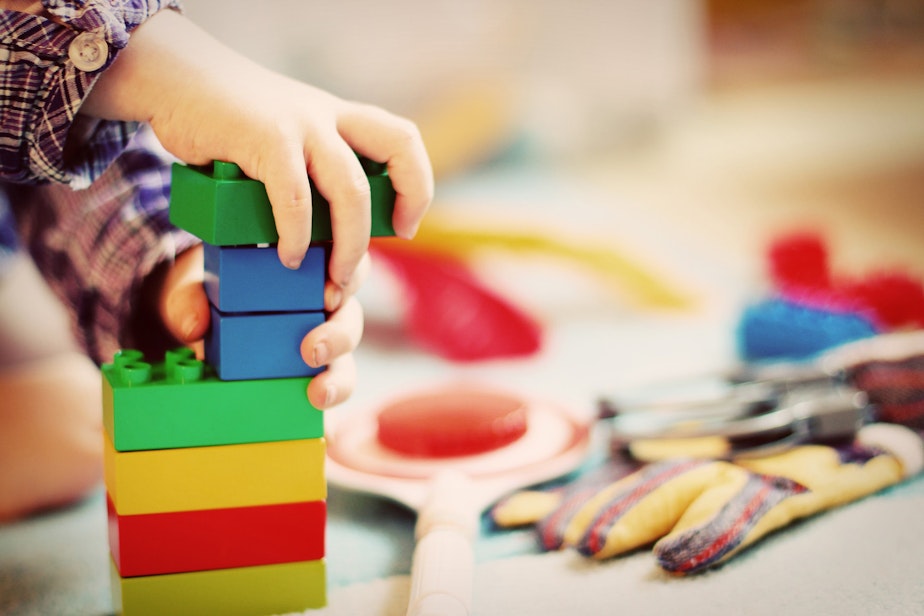The 'Unschooling' Movement: Letting Children Lead Their Learning

With Meghna Chakrabarti
Is a child who spends the day watching videos or playing in the backyard actually learning? Yes, say advocates of the “unschooling” movement.
Guests
Maleka Diggs, founder of Eclectic Learning Network, a secular, black and brown-centered home-education network. She unschools her 11- and 13-year-old daughters.
Peter Gray, psychology professor at Boston College. Co-founder and president of the nonprofit Alliance for Self-Directed Education. Author of “Free to Learn: Why Unleashing the Instinct to Play Will Make Our Children Happier, More Self-Reliant, and Better Students for Life.”
Sponsored
Michael Apple, professor of curriculum and instruction, and educational policy studies at the University of Wisconsin-Madison.
From The Reading List
Boston Globe: “Twenty percent of home-schooled kids are getting ‘unschooled.’ What’s that?” — “‘You want to come see the worm bin?’ asks Mary, a towheaded 9-year-old, who then hustles me to a shed on the edge of an outdoor garden at the JP Green School in Jamaica Plain. Sifting through a green plastic bin, she shows off dark, wet soil teeming with wriggling red worms. ‘The worms break down the compost and it’s good soil and fertilizer for the plants,’ she says. ‘It’s like poop.’ A few steps away, her 10-year-old brother, Jimmy, is standing at a cinder-block wall, painting a mural of a tree that, he says, grows cats in a ‘parallel dimension.’ Other children are helping to build a chicken coop, or just wandering among the gardens of lettuce, cilantro, and wood sorrel.
“Nothing about the scene this Tuesday morning in June looks anything like school — and that’s by design, says Andree Zaleska, the JP Green School’s co-founder and co-director. It was created as a center for ‘unschooling,’ where children are largely free from traditional school structure. ‘Kids are talked at and given busy work, but I don’t think they are absorbing much of what they are taught anyway,’ Zaleska says. She also thinks the sharp decline in recess time at schools ‘damages’ students, affecting their ability to concentrate.
“At the Green School, which is open Monday through Wednesday roughly in line with the school year, children ages 4 to 11 spend 90 minutes a day in science classes, mostly engaged in hands-on work such as dissecting flowers. The rest of the time, they can zoom around on Razor scooters, hack apart logs with hatchets to observe the bugs that fall out, and make smoothies with fresh herbs from the garden. Zaleska says it’s not so much school she’s offering as a traditional childhood — in other words, the exact opposite of jamming preschoolers’ lives with activities meant to help them get into an Ivy.”
Sponsored
Psychology Today: “A Survey of Grown Unschoolers I: Overview of Findings” — “In a study that preceded the one to be described here, my colleague Gina Riley and I surveyed parents in unschooling families—that is, in families where the children did not go to school and were not homeschooled in any curriculum-based way, but instead were allowed to take charge of their own education. The call for participants for that study was posted, in September, 2011, on my blog (here) and on various other websites, and a total of 232 families who met our criteria for participation responded and filled out the questionnaire. Most respondents were mothers, only 9 were fathers. In that study we asked questions about their reasons for unschooling, the pathways by which they came to unschooling, and the major benefits and challenges of unschooling in their experience.
“I posted the results of that study as a series of three articles in this blog—here, here, and here—and Gina and I also published a paper on it in the Journal of Unschooling and Alternative Learning (here). Not surprisingly, the respondents in that survey were very enthusiastic and positive about their unschooling experiences. They described benefits having to do with their children’s psychological and physical wellbeing, improved social lives, and improved efficiency of learning and attitudes about learning. They also wrote about the increased family closeness and harmony, and the freedom from having to follow a school-imposed schedule, that benefited the whole family. The challenges they described had to do primarily with having to defend their unschooling practices to those who did not understand them or disapproved of them, and with overcoming some of their own culturally-ingrained, habitual ways of thinking about education.”
KQED: “How do Unschoolers Turn Out?” — “Peter Gray has studied how learning happens without any academic requirements at a democratic school. The Boston College research professor also wrote about the long history and benefits of age-mixed, self-directed education in his book Free to Learn. Over the years, as he encountered more and more families who had adopted this approach at home (these so-called ‘unschoolers’ are estimated to represent about 10 percent of the more than two million homeschooled children), he began to wonder about its outcomes in that setting. Finding no academic studies that adequately answered his question, he decided to conduct his own.
“In 2011, he and colleague Gina Riley surveyed 232 parents who unschool their children, which they defined as not following any curriculum, instead letting the children take charge of their own education. The respondents were overwhelmingly positive about their unschooling experience, saying it improved their children’s general well-being as well as their learning, and also enhanced family harmony. Their challenges primarily stemmed from feeling a need to defend their practices to family and friends, and overcoming their own deeply ingrained ways of thinking about education.” [Copyright 2018 NPR]
